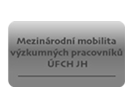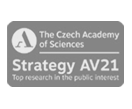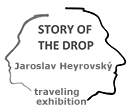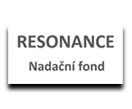I do not miss anything in research in the Czech Republic, says Pamir Nag
After completing his doctorate in India, Pamir Nag wanted to do science in Europe. He told us what is good to know when writing a project, and also how he actually likes it in the Czech Republic.
Before completing his doctoral study at the Indian Institute of Science Education and Research in Kolkata, Pamir was clear that he wanted to do research in Europe. He, therefore, began to think about the funding. One option was a scholarship from the Alexander von Humboldt Foundation and the other was MSCA.

"I was willing to perform my research independently. MSCA provides support to individual researchers. You no longer work under someone like the postdoc. You have a boss, but you don't get money from the boss, which means you have more freedom. It is like an intermediate step in becoming an independent scientist. I would definitely recommend the MSCA to all junior scientists who want to gain experience in Europe. It allows you to go to all EU countries and even some others. It's a really good grant," says the scientist.
Offers from America or Germany, the Czechia won
Already during his doctorate, Pamir spent two months at the Max Planck Institute in Germany and was considered continuing there. But in 2015, Pamir happened to meet Juraj Fedor at a conference in India. Juraj Fedor works at the Department of Dynamics of Molecules and Clusters at the J. Heyrovský Institute of Physical Chemistry. And because the fate of big events often depends on small things, at the next conference they agreed that Pamir will go to Prague for a year.
Pamir liked working at the Max Planck Institute, he only wanted to go to the Czech Republic for a year. In the beginning, he was not sure whether he would stay, because the Czech Republic does not have such a reputation as Germany or France. But he decided to give it a try and found nothing missing. "Max Planck has huge financial resources and the laboratories are well equipped, but in the Czech Republic, it is the same. I never felt that I am missing a device or there was a problem with financing. The difference between Central and Western Europe is just a prejudice for me. Now I am just laughing at my first impression of the age-old building of the J. Heyrovský Institute of Physical Chemistry. However, when I walked inside, the equipment was modern to my surprise," Pamir recalls amusedly.
"I had funding secured for one year, but I wanted to spend more time here. I came to Prague in January 2018 and started working at MSCA shortly after my arrival. I was placed in the "No money" category, but I received the Seal of Excellence. I received instructions from the MSCA and my supervisor that I could apply for support from the Ministry of Education, Youth and Sports," says Pamir, who also had an offer from the US but turned it down because he wanted to go to Europe.
After the MSCA, it is easier to apply for the GAČR grants
Pamir emphasizes two tips that are good to know when writing a project. First, you need to consider and underline how unique you are to the host institution, but also that the host institution will pass on something unique to you. The second piece of advice is that your application must be unique and innovative, but the research must be feasible within two years. In other words, you should not promise something that depends on a device that the institution does not yet have but you need it. The evaluators would not like such an approach.
"Writing the project itself definitely helped me to move forward in my career. At the moment, I am writing a GAČR project, and now I know how to write a long-term project. But most of all, I have an advantage now when I apply for other grants, I have an MSCA on my CV. It is prestigious".
Not just science, but also personal life
According to Pamir, work and personal life are well-balanced in the Czech Republic. In India, it was required to work for ten to twelve hours daily, and all PhD students had to live on campus.
"I'm happy here. I can always find someone willing to help me when I need it. I used to have a problem sometimes that others were not speaking English but only Czech, but there was always someone who translated everything to me," says Pamir, who pauses unexpectedly and begins to speak Czech fluently. "Yes, Czech is a difficult language, but I've been here for three and a half years, so I learned it."
Pamir studies electron collisions in an environment similar to the human body
Pamir's project answers questions about what happens after exposure to high-energy radiation, such as ionizing radiation. This radiation produces low-energy electrons that can break molecular bonds. Of course, this can mean potential damage to human tissue, but if the processes are well understood, in the future it will be possible to use radiation, for example, to kill cancer cells. Pamir is working on a project to understand the effect of electron collision in an environment that simulates human tissue. He studies how electrons collide with organic molecules dissolved in water. So far, the effect of electrons has been studied in the gas phase, while human tissue contains two-thirds water.
Author: Vědavýzkum.cz (ED)
Translated with the financial support of the Capacity Development of ÚFCH JH, v.v.i. for Research and Development project; CZ.02.2.69/0.0/0.0/16_028/0006251; European Structural and Investments Funds, Operational Programme Research, Development and Education.















